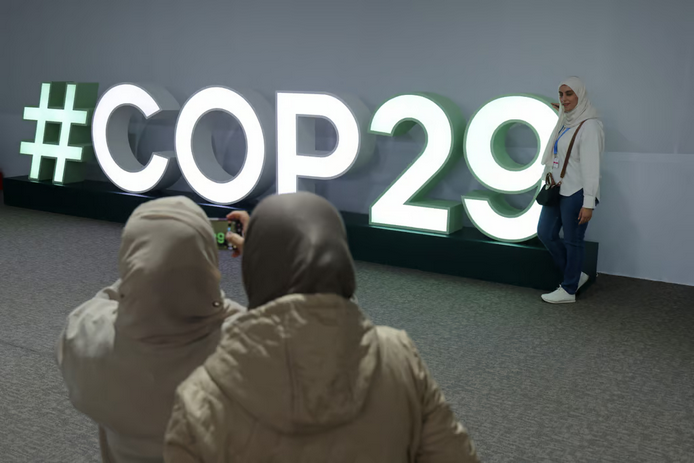
By Charles Muchoki | Africa Guardian
Africa stands at the intersection of a mounting climate crisis and unsustainable debt burdens, necessitating urgent global action. As world leaders convene at COP29 in Baku, discussions about climate finance must include the imperative of debt relief. Without it, even substantial new climate funding risks being undermined, akin to pedaling harder on a bicycle with flat tires.
The Debt-Climate Trap in Africa
Africa is disproportionately vulnerable to climate change, with 17 of the 20 most climate-threatened nations located on the continent. Nearly half of African countries face debt distress or are dangerously close to it. This precarious situation pits the cost of servicing past debts against the urgent need to safeguard the continent’s future through climate adaptation and mitigation.
Contrary to common assumptions, Africa’s debt burden is not a product of fiscal irresponsibility. The total debt owed by African governments is less than two-thirds of Germany’s, and its average debt-to-GDP ratio is about half that of G7 nations. The issue lies in the debt structure: much of it is denominated in U.S. dollars. Rising global interest rates and a stronger dollar have exacerbated the debt-servicing burden, compounded by plummeting government revenues due to COVID-19 and the war in Ukraine.
A Tragic Choice for African Nations
African nations now face a harrowing dilemma:
- Default on debts to fund climate adaptation but risk plunging into economic instability.
- Service debts at the expense of resilience, leaving populations more vulnerable to catastrophic climate events.
Alternatively, countries could borrow more, sinking deeper into the debt-climate trap. Yet, for many, borrowing costs are already prohibitively high, and much of the climate finance offered comes as loans rather than grants.
The Case for Debt Relief
Debt relief offers a faster and more sustainable solution to this crisis. Critics argue that it would be complex and time-consuming, yet history shows otherwise. During the pandemic, the G20 swiftly implemented the Debt Service Suspension Initiative (DSSI), enabling nations to redirect resources to urgent needs. This initiative provides a roadmap for climate-related debt relief today.
A coordinated effort to reduce African debt would:
- Expand fiscal space, empowering nations to implement climate-resilient measures tailored to their needs.
- Address the misallocation of climate finance, which often prioritizes emissions reductions over adaptation to climate shocks.
- Prevent the cascading effects of defaults, which would deter investment and destabilize global markets, particularly in sectors critical to the green energy transition.
The Stakes and Opportunities
In 2023 alone, African governments spent $163 billion servicing debt while receiving just $30 billion for climate adaptation—far below the estimated $227 billion needed annually. A new climate finance goal at COP29 is unlikely to close this gap, given the modest commitments expected and the slow pace of funding delivery.
Debt relief, however, offers a direct path to unlock the resources Africa requires. Beyond addressing immediate needs, it would enhance global economic stability and accelerate the green energy transition. Africa’s reserves of critical minerals like cobalt, manganese, and platinum are essential for renewable technologies. Ensuring the continent’s economic stability is in the world’s shared interest.
A Call for Action
Debt-for-climate swaps and small-scale solutions have shown limited impact, writing off just $3.7 billion globally since the 1980s. Africa requires a bold, coordinated approach to debt relief at a scale commensurate with the challenges it faces.
The world cannot afford to overlook this moment. Africa contributes only 3% of global emissions but bears a disproportionate share of the climate crisis’s impacts. At COP29, global leaders must recognize that debt relief is not just a moral imperative but a pragmatic solution to unlock Africa’s potential for resilience and sustainable development.
Africa needs relief, and the world needs Africa. Let COP29 mark the beginning of a truly inclusive and just global response to the intertwined challenges of debt and climate change.
___
